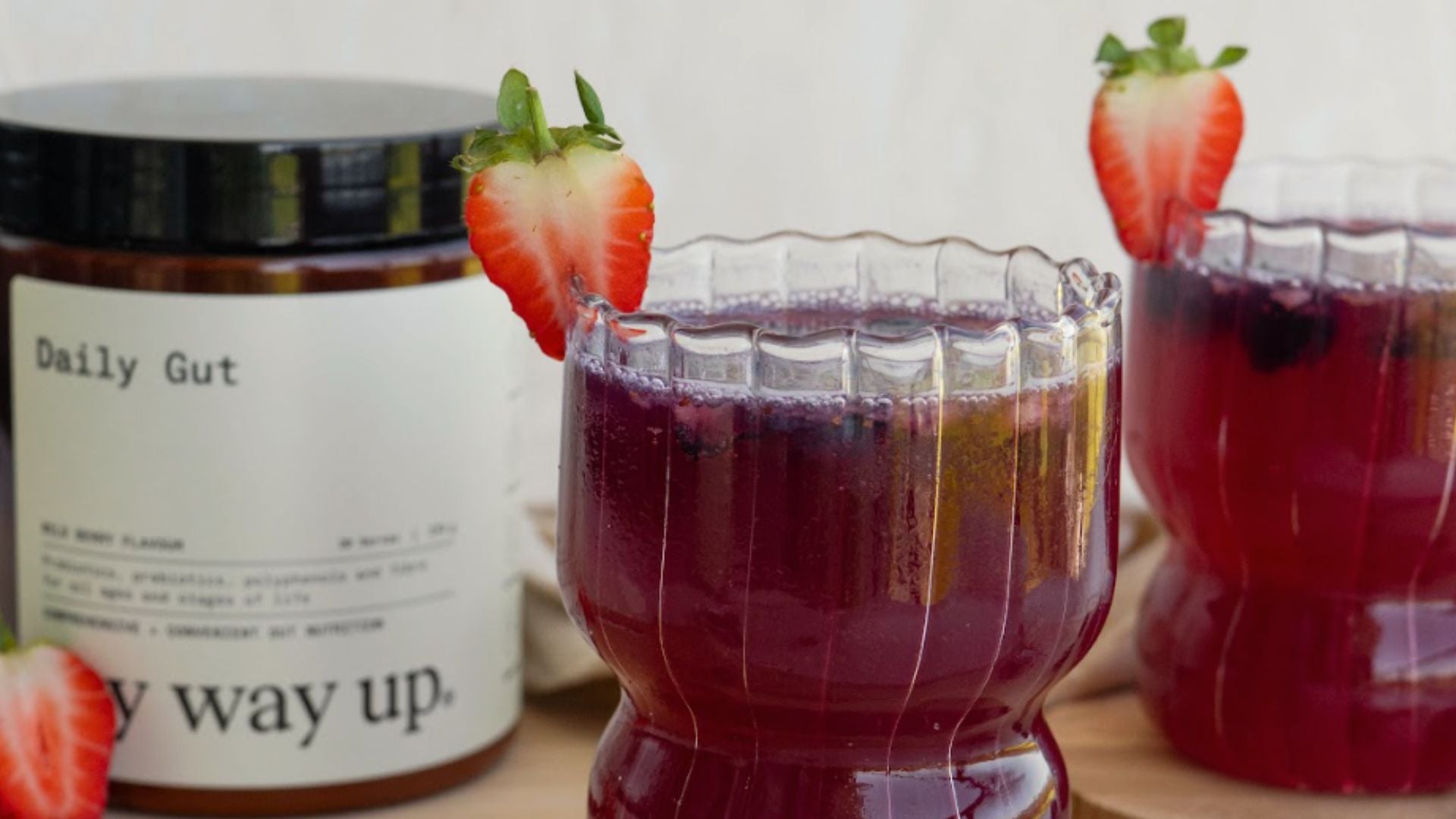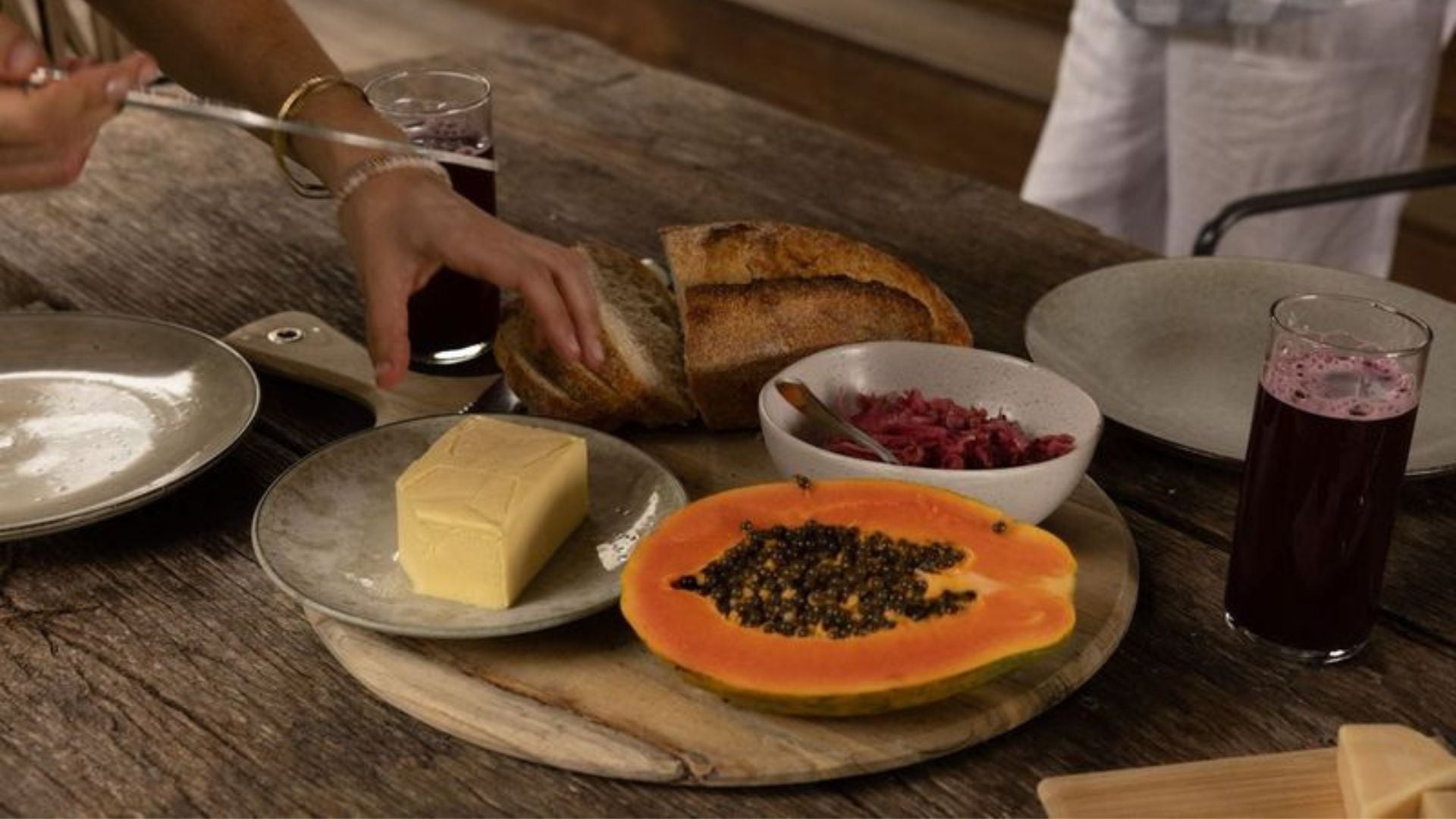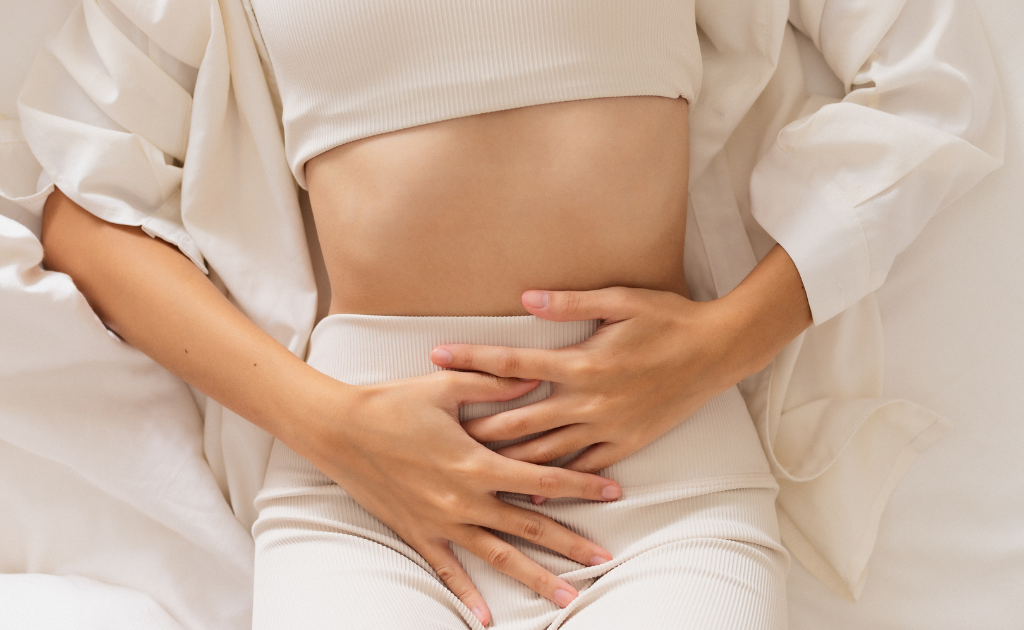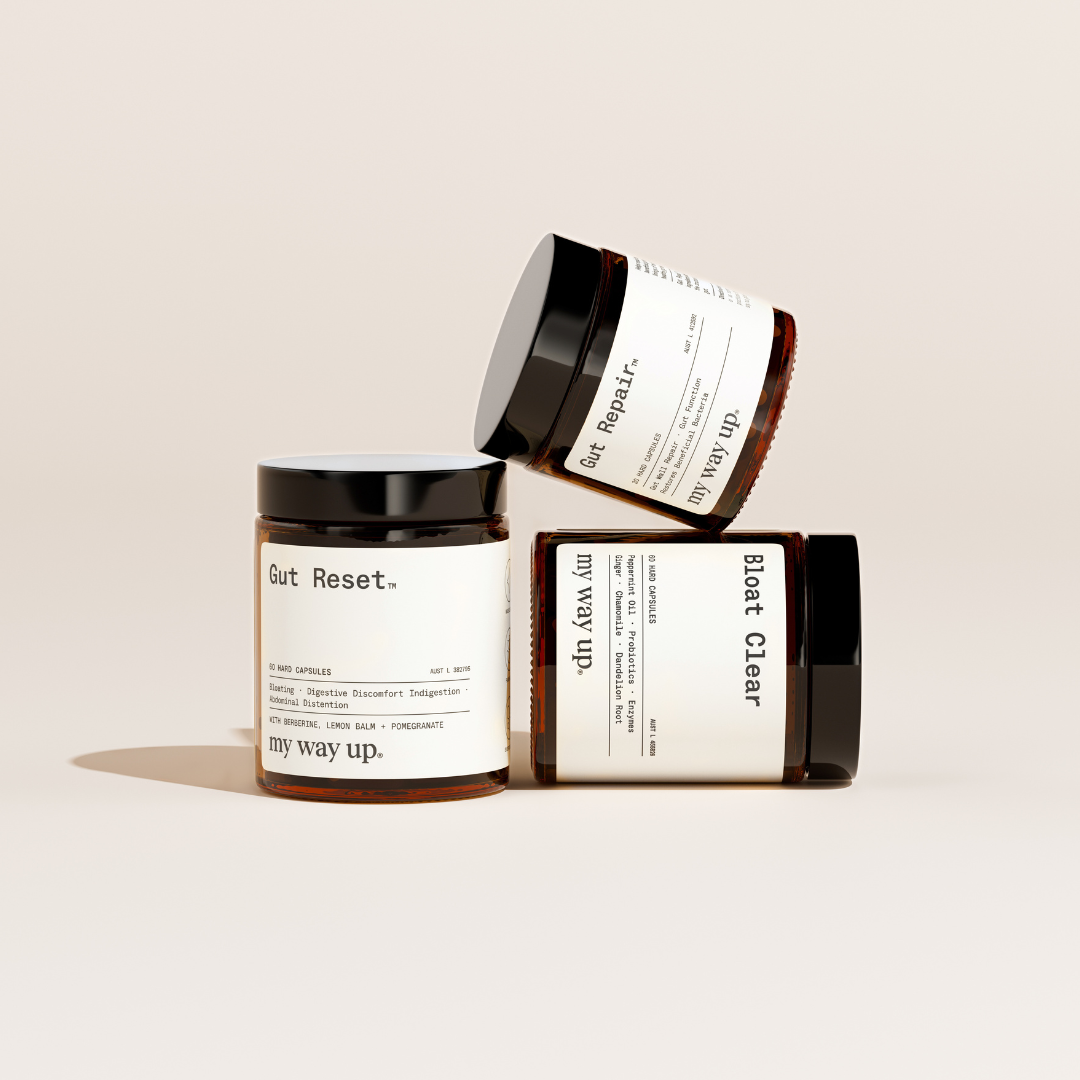1.
Popli S, Badgujar PC, Agarwal T, Bhushan B, Mishra V. Persistent organic pollutants in foods, their interplay with gut microbiota and resultant toxicity. Sci Total Environ 2022;832:155084. https://doi.org/10.1016/j.scitotenv.2022.155084.
2.
Teffera M, Veith AC, Ronnekleiv-Kelly S, Bradfield CA, Nikodemova M, Tussing-Humphreys L, et al. Diverse mechanisms by which chemical pollutant exposure alters gut microbiota metabolism and inflammation. Environ Int 2024;190:108805. https://doi.org/10.1016/j.envint.2024.108805.
3.
Abdelshafy AM, Mahmoud AR, Abdelrahman TM, Mustafa MA, Atta OM, Abdelmegiud MH, et al. Biodegradation of chemical contamination by lactic acid bacteria: A biological tool for food safety. Food Chem 2024;460:140732. https://doi.org/10.1016/j.foodchem.2024.140732.
4.
Eken A. Chapter 7 - Dimethoate organophosphate insecticide toxicity and the role of oxidative stress. In: Patel VB, Preedy VR, editors. Toxicology, Academic Press; 2021, p. 59–68. https://doi.org/10.1016/B978-0-12-819092-0.00007-8.
5.
Średnicka P, Juszczuk-Kubiak E, Wójcicki M, Akimowicz M, Roszko MŁ. Probiotics as a biological detoxification tool of food chemical contamination: A review. Food Chem Toxicol 2021;153:112306. https://doi.org/10.1016/j.fct.2021.112306.
6.
Popova A, Mihaylova D. Antinutrients in Plant-based Foods: A Review n.d. https://doi.org/10.2174/1874070701913010068.
7.
Urugo MM, Tringo TT. Naturally Occurring Plant Food Toxicants and the Role of Food Processing Methods in Their Detoxification. Int J Food Sci 2023;2023:9947841. https://doi.org/10.1155/2023/9947841.
8.
Collins SL, Patterson AD. The gut microbiome: an orchestrator of xenobiotic metabolism. Acta Pharm Sin B 2020;10:19–32. https://doi.org/10.1016/j.apsb.2019.12.001.
9.
Langford L, Shah DD. Bioinformatic Analysis of Sulfotransferases from an Unexplored Gut Microbe, Sutterella wadsworthensis 3_1_45B: Possible Roles towards Detoxification via Sulfonation by Members of the Human Gut Microbiome. Int J Mol Sci 2024;25:2983. https://doi.org/10.3390/ijms25052983.
10.
Emanowicz P, Średnicka P, Wójcicki M, Roszko M, Juszczuk-Kubiak E. Mitigating Dietary Bisphenol Exposure Through the Gut Microbiota: The Role of Next-Generation Probiotics in Bacterial Detoxification. Nutrients 2024;16:3757. https://doi.org/10.3390/nu16213757.
11.
Dempsey JL, Cui JY. Microbiome Is a Functional Modifier of P450 Drug Metabolism. Curr Pharmacol Rep 2019;5:481–90. https://doi.org/10.1007/s40495-019-00200-w.
12.
Petrova P, Arsov A, Tsvetanova F, Parvanova-Mancheva T, Vasileva E, Tsigoriyna L, et al. The Complex Role of Lactic Acid Bacteria in Food Detoxification. Nutrients 2022;14:2038. https://doi.org/10.3390/nu14102038.
13.
Liao Y, Chen J, Li J, Wang J, Cheng L, Guo M. Association between probiotic consumption and serum perfluoroalkyl and polyfluoroalkyl substances (PFAS): results from NHANES, 2003–2018. Environ Sci Eur 2023;35:105. https://doi.org/10.1186/s12302-023-00808-2.
14.
Yasukawa Z, Inoue R, Ozeki M, Okubo T, Takagi T, Honda A, et al. Effect of Repeated Consumption of Partially Hydrolyzed Guar Gum on Fecal Characteristics and Gut Microbiota: A Randomized, Double-Blind, Placebo-Controlled, and Parallel-Group Clinical Trial. Nutrients 2019;11:2170. https://doi.org/10.3390/nu11092170.
15.
Reider SJ, Moosmang S, Tragust J, Trgovec-Greif L, Tragust S, Perschy L, et al. Prebiotic Effects of Partially Hydrolyzed Guar Gum on the Composition and Function of the Human Microbiota—Results from the PAGODA Trial. Nutrients 2020;12:1257. https://doi.org/10.3390/nu12051257.
16.
Cherbut C, Michel ,Catherine, Raison ,Virginie, Kravtchenko ,Thierry, and Severine M. Acacia Gum is a Bifidogenic Dietary Fibre with High Digestive Tolerance in Healthy Humans. Microb Ecol Health Dis 2003;15:43–50. https://doi.org/10.1080/08910600310014377.
17.
Larson R, Nelson C, Korczak R, Willis H, Erickson J, Wang Q, et al. Acacia Gum Is Well Tolerated While Increasing Satiety and Lowering Peak Blood Glucose Response in Healthy Human Subjects. Nutrients 2021;13:618. https://doi.org/10.3390/nu13020618.
18.
Saha MR, and Dey P. Pharmacological benefits of Acacia against metabolic diseases: intestinal-level bioactivities and favorable modulation of gut microbiota. Arch Physiol Biochem 2024;130:70–86. https://doi.org/10.1080/13813455.2021.1966475.
19.
Ma G, Chen Y. Polyphenol supplementation benefits human health via gut microbiota: A systematic review via meta-analysis. J Funct Foods 2020;66:103829. https://doi.org/10.1016/j.jff.2020.103829.
20.
Catalkaya G, Venema K, Lucini L, Rocchetti G, Delmas D, Daglia M, et al. Interaction of dietary polyphenols and gut microbiota: Microbial metabolism of polyphenols, influence on the gut microbiota, and implications on host health. Food Front 2020;1:109–33. https://doi.org/10.1002/fft2.25.
21.
Rodríguez-Daza MC, Pulido-Mateos EC, Lupien-Meilleur J, Guyonnet D, Desjardins Y, Roy D. Polyphenol-Mediated Gut Microbiota Modulation: Toward Prebiotics and Further. Front Nutr 2021;8. https://doi.org/10.3389/fnut.2021.689456.
22.
Sivamani RK, Chakkalakal M, Pan A, Nadora D, Min M, Dumont A, et al. Prospective Randomized, Double-Blind, Placebo-Controlled Study of a Standardized Oral Pomegranate Extract on the Gut Microbiome and Short-Chain Fatty Acids. Foods 2024;13:15. https://doi.org/10.3390/foods13010015.
23.
Sun H, Chen Y, Cheng M, Zhang X, Zheng X, Zhang Z. The modulatory effect of polyphenols from green tea, oolong tea and black tea on human intestinal microbiota in vitro. J Food Sci Technol 2018;55:399–407. https://doi.org/10.1007/s13197-017-2951-7.
24.
Liu Y-C, Li X-Y, Shen L. Modulation effect of tea consumption on gut microbiota. Appl Microbiol Biotechnol 2020;104:981–7. https://doi.org/10.1007/s00253-019-10306-2.
25.
Vendrame S, Guglielmetti S, Riso P, Arioli S, Klimis-Zacas D, Porrini M. Six-Week Consumption of a Wild Blueberry Powder Drink Increases Bifidobacteria in the Human Gut. J Agric Food Chem 2011;59:12815–20. https://doi.org/10.1021/jf2028686.
26.
Alves JL de B, Costa ,Paulo César Trindade da, Sales ,Ludmilla Christine Silva de, Silva Luis ,Cristiane Cosmo, Bezerra ,Tainá Patrícia Teixeira, Souza ,Maria Luiza Alves, et al. Shedding light on the impacts of Spirulina platensis on gut microbiota and related health benefits. Crit Rev Food Sci Nutr 2025;65:2062–75. https://doi.org/10.1080/10408398.2024.2323112.
27.
Pais P, Almeida V, Yılmaz M, Teixeira MC. Saccharomyces boulardii: What Makes It Tick as Successful Probiotic? J Fungi 2020;6:78. https://doi.org/10.3390/jof6020078.
28.
Kang S, Park MY, Brooks I, Lee J, Kim SH, Kim JY, et al. Spore-formingBacillus coagulansSNZ 1969 improved intestinal motility and constipation perception mediated by microbial alterations in healthy adults with mild intermittent constipation: A randomized controlled trial. Food Res Int 2021;146:110428. https://doi.org/10.1016/j.foodres.2021.110428.
29.
Shinde T, Vemuri R, Shastri MD, Perera AP, Tristram S, Stanley R, et al. ProbioticBacillus coagulansMTCC 5856 spores exhibit excellentin-vitrofunctional efficacy in simulated gastric survival, mucosal adhesion and immunomodulation. J Funct Foods 2019;52:100–8. https://doi.org/10.1016/j.jff.2018.10.031.
30.
Majeed M, Nagabhushanam K, Mundkur L, Paulose S, Divakar H, Rao S, et al. Probiotic modulation of gut microbiota by Bacillus coagulans MTCC 5856 in healthy subjects: A randomized, double-blind, placebo-control study. Medicine (Baltimore) 2023;102:e33751. https://doi.org/10.1097/MD.0000000000033751.
31.
Maity C, Gupta, PhD ,Anil Kumar, Saroj ,Dina B., Biyani ,Atul, Bagkar ,Pratik, Kulkarni ,Jayshree, et al. Impact of a Gastrointestinal Stable Probiotic Supplement Bacillus coagulans LBSC on Human Gut Microbiome Modulation. J Diet Suppl 2021;18:577–96. https://doi.org/10.1080/19390211.2020.1814931.
32.
Diestel CF, Marques RG, Lopes-Paulo F, Paiva D, Horst NL, Caetano CER, et al. Role of l-glutamine and glycine supplementation on irradiated colonic wall. Int J Colorectal Dis 2007;22:1523–9. https://doi.org/10.1007/s00384-007-0341-8.
33.
Wang B, Wu G, Zhou Z, Dai Z, Sun Y, Ji Y, et al. Glutamine and intestinal barrier function. Amino Acids 2015;47:2143–54. https://doi.org/10.1007/s00726-014-1773-4.
34.
Bahrami G, Malekshahi H, Miraghaee S, Madani H, Babaei A, Mohammadi B, et al. Protective and Therapeutic Effects of Aloe Vera Gel on Ulcerative Colitis Induced by Acetic Acid in Rats. Clin Nutr Res 2020;9:223–34. https://doi.org/10.7762/cnr.2020.9.3.223.
35.
Choi S-H, Eom J-Y, Kim H-J, Seo W, Kwun H-J, Kim D-K, et al. Aloe-derived nanovesicles attenuate inflammation and enhance tight junction proteins for acute colitis treatment. Biomater Sci 2023;11:5490–501. https://doi.org/10.1039/D3BM00591G.
36.
Deters A, Zippel J, Hellenbrand N, Pappai D, Possemeyer C, Hensel A. Aqueous extracts and polysaccharides from Marshmallow roots (Althea officinalisL.): Cellular internalisation and stimulation of cell physiology of human epithelial cellsin vitro. J Ethnopharmacol 2010;127:62–9. https://doi.org/10.1016/j.jep.2009.09.050.
37.
Yin Y, Martínez ,Remigio, Zhang ,Wangang, and Estévez M. Crosstalk between dietary pomegranate and gut microbiota: evidence of health benefits. Crit Rev Food Sci Nutr 2024;64:10009–35. https://doi.org/10.1080/10408398.2023.2219763.
38.
Wan MLY, Ling KH, Wang MF, El-Nezami H. Green tea polyphenol epigallocatechin-3-gallate improves epithelial barrier function by inducing the production of antimicrobial peptide pBD-1 and pBD-2 in monolayers of porcine intestinal epithelial IPEC-J2 cells. Mol Nutr Food Res 2016;60:1048–58. https://doi.org/10.1002/mnfr.201500992.







